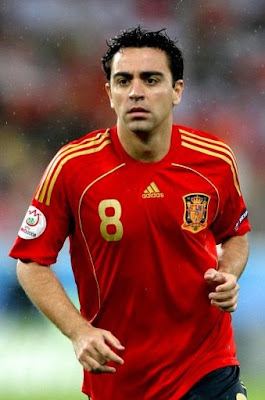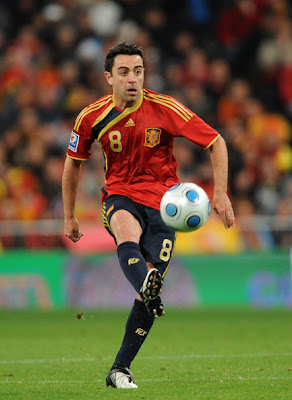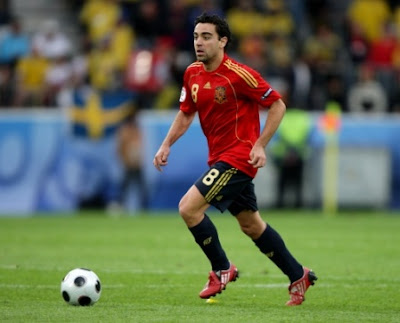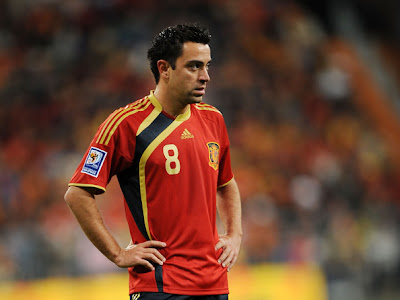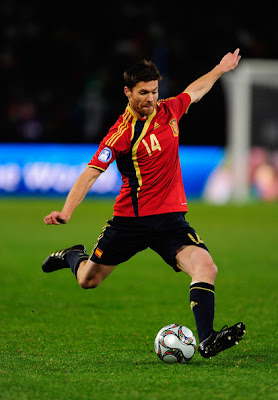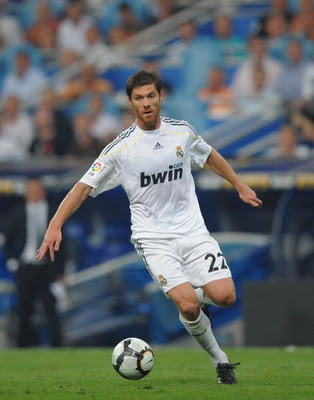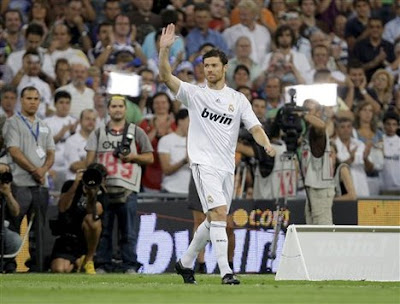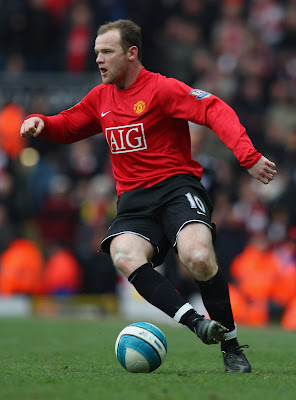
If this is finally the year that the German Bundesliga wrests third place in the UEFA Coefficient rankings away from Italy’s Serie A, it’ll have Markus Rosenberg to thank. Down 3-0 and 4-3 on aggregate at Sampdoria with only minutes to spare, the 27-year-old Werder Bremen forward found the back of the net with a low, angled shot from outside the area that leveled the score on aggregate and breathed new life into the northern German outfit, and potentially, into all of German football itself.
The UEFA Coefficients, which determine the amount of European places each domestic league gets, fluctuate annually in correlation with each club’s performance in the Champions League, and are then recalculated and reattributed to those leagues from which those specific clubs hail. Simply put, the better the performances of a league’s clubs in the Champions League, the higher that league’s UEFA coefficient. England’s Premier League currently has the highest coefficient of all European domestic leagues, and Spain’s Primera Division is a close second, each of them able to send their best four teams to the Champions League. It is the third spot in the coefficient rankings that remains so volatile and unpredictable with two powerhouse countries in Germany and Italy jostling for the position.
It was only last year when the whisperings of a changing of the guard in third place suddenly morphed into shouts, made audible most notably in Bayern Munich’s come-from-behind 4-1 thrashing of Juventus in Turin in the final game of the group stage that sent the Old Lady packing for the Europa League, and the Bavarians on to the knockout stages, where they deposed another Italian side in Fiorentina, Manchester United, and Lyon en route to the Final. Juventus’ inability to reach the knockout rounds coupled with both Fiorentina and Milan’s ignominious departures at the round of sixteen (that included an alarmingly lopsided 7-2 aggregate drubbing courtesy of Manchester United for the Rossoneri) was manifesting what pundits abroad had already begun to suspect: that Italian clubs could no longer hack it in the Champions League.
Enter Mourinho. In just his second season in charge at Internazionale, the Portuguese mastermind guided the Nerazzurri to their first European crown in 45 years and third overall, disposing of former employers Chelsea, a tricky CSKA Moscow side, and reigning champions Barcelona, before putting Bayern Munich to the sword in the Final to claim the title. It was a result that not only brought the European Cup back to an Italian club for the first time since 2007, but also reasserted Serie A as the third best league, and therefore, as having the third best UEFA coefficient. Italian football was safe. At least it was then.
Flash forward almost three months and fate offered its football fans another intriguing German/Italian tilt, this time between Werder Bremen and Sampdoria. The German outfit, who just recently sold their most dynamic asset in Mesut Özil (ironically to Mourinho) to Real Madrid, had finished third in the Bundesliga the previous season, which was good enough to land them a date on the Non-Champions Path of the Play-off round of the Champions League with Sampdoria, who finished fourth in Serie A last term.
Werder Bremen were in the driver’s seat, too, after last week’s first leg saw them overwhelm a rather underwhelming Sampdoria side who managed to tally a last-minute away goal in a 3-1 defeat at the Weserstadion in northwest Germany. Then came this evening when the prolific Giampaolo Pazzini ignited the jubilant home crowd of just over 28,000 at the Stadio Luigi Ferraris with two awe-inspiring finishes, the first with his head, the second on a right-footed volley of sumptuous quality that sent the supporters into an uncontrolled frenzy. Progression to the group stage was all but certain when in the second half Pazzini’s forward companion Antonio Cassano cheekily sneaked the ball past Werder Bremen keeper Tim Wiese on a back-heel to make it 3-0 Sampdoria who now led 4-3 on aggregate.

It was a curious affair. The first leg had been dominated outright by the German outfit, the second by their Italian adversaries, whose league, just as they had at the end of last year’s Final, once again looked in position to reign supreme over the Bundesliga for that third coefficient spot. Then came Rosenberg’s strike.
Just like Pazzini’s late away goal in the first leg in Germany, it must have caught Sampdoria and its rampant fans completely off guard. The seemingly impenetrable and elating feeling of safety and progression had suddenly been breached, and in extra time, a blast of admirable technique and quality from visitor Claudio Pizarro ensured that dream of playing in the group stage of the Champions League was quashed completely as Werder Bremen boasted the superior away goal tally and won comfortably 5-4 on aggregate, undoubtedly leaving the home supporters stunned and in a state of serious disrepair.
If one were to examine the UEFA coefficients today, they would see that the Bundesliga has leapfrogged Serie A into third place, and Rosenberg and then Pizarro’s strikes are big reasons why. The Werder Bremen triumph ensures that the group stage will feature the same amount of German sides (three: Bremen, Bayern, Schalke) as Italian sides (Inter, Milan, Roma), as opposed to two and four, had Sampdoria hung on. What’s more is that with Sevilla bowing out to Braga, the Bundesliga will boast the same amount of clubs at this year’s group stage as La Liga, and the same will be said about the Premier League should Tottenham fail tomorrow against Young Boys. If the Bundesliga does usurp Serie A for the third-best coefficient at the end of 2011, then the fourth European spot for German clubs won’t be allocated until the 2012-13 Champions League campaign. However, the coefficient will ultimately and inexorably be determined by the performances of German clubs and Italian clubs, and nothing more. But it would appear that at the moment the Bundesliga has a leg up over Italy’s top-flight division after Bremen’s never-say-die effort in Genoa this evening.
Last year’s Final saw a cosmopolitan Italian side defeat a somewhat-homegrown German side that temporarily rescued Serie A from falling to fourth in UEFA coefficients thanks to a pair of goals by Argentine striker Diego Milito. On this night in Genoa, I found it all too fitting that this German outfit’s two goals that made the Bundesliga’s strongest case yet for claiming the third-best UEFA coefficient came from a Swede (Rosenberg) and a Peruvian (Pizarro). And just like Milito’s, theirs may yet prove to be two of the most important strikes for their domestic league’s history. That is, of course, if the German sides can sustain these kinds of performances.



 It was a curious affair. The first leg had been dominated outright by the German outfit, the second by their Italian adversaries, whose league, just as they had at the end of last year’s Final, once again looked in position to reign supreme over the Bundesliga for that third coefficient spot. Then came Rosenberg’s strike.
It was a curious affair. The first leg had been dominated outright by the German outfit, the second by their Italian adversaries, whose league, just as they had at the end of last year’s Final, once again looked in position to reign supreme over the Bundesliga for that third coefficient spot. Then came Rosenberg’s strike.